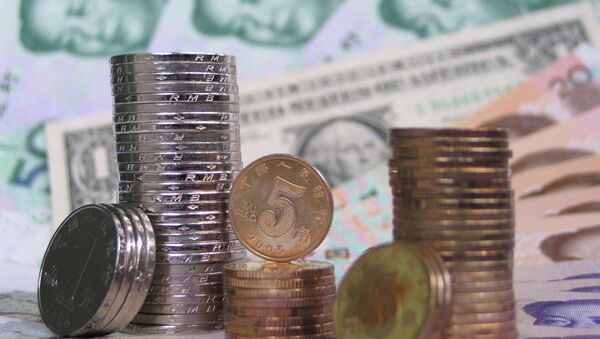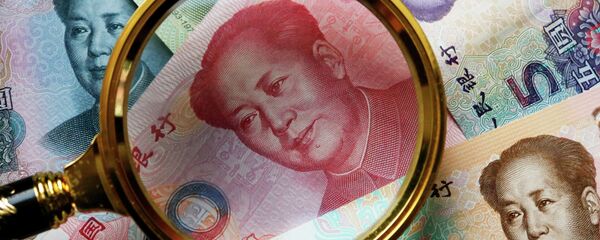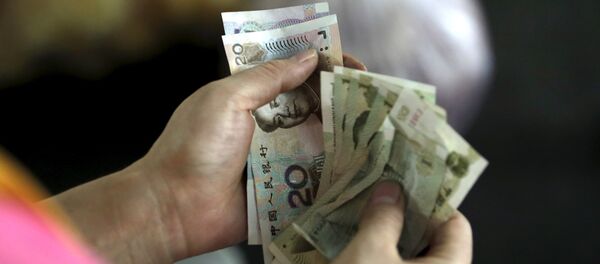The People's Bank of China (PBC) allowed the yuan to slide 1.9 percent against the US dollar on Tuesday, reaching its lowest rate in almost three years.
Predictably, China's decision has had an impact upon international market players, including Australia. The Australian dollar is now following the yuan, noted Alan Kohler, an Australian journalist and financial expert.
"China devalues the yuan by 1.9 per cent, Australia devalues by the same: as a result the AUD/CNY exchange rate yesterday morning was the same as it was on Tuesday morning. And after China devalued by another 1.6 per cent…, the Australian dollar followed the yuan lower," Kohler pointed out, adding that obviously China's move has not been aimed primarily against Australia.
"[W]hile the adjustments by China of its exchange rate were pretty small — more a statement of intent than a big deal in itself — they are definitely a big deal for Australia," Kohler emphasized, stressing that the yuan overvaluation has triggered Australia's housing and tourism booms.
"The boom in Australian house prices has partly resulted from the 35 per cent devaluation of the Australian dollar against the Chinese yuan since 2011 — Chinese investors have become the marginal pricers of Australian real estate but have been coming to the auctions with different calculators to the rest of us," Kohler noted.
The expert believes that Beijing "is trying to resume its role as an exporter of deflation to the rest of the world, in particular the US." He noted that the People's Bank of China's moves may prevent the US Federal Reserve from raising interest rates in September, as it purportedly plans to do.
According Standard Bank China economist Jeremy Stevens, China's move was motivated by the desire to increase the flexibility of the country's currency improving the chance of the yuan's inclusion in the International Monetary Fund's reserve basket by the end of this year.
China's new policy has caught many investors by surprise, crashing prices of both stocks and commodities. However, according to the People's Bank of China official statement, there is no basis for a continuing depreciation of China's currency.
"In view of both domestic and international economic and financial condition, currently there is no basis for persistently depreciation of RMB [the yuan]. First, China registered a relatively rapid economic growth in the first half of 2015, facing complex and challenging environment both in China and abroad. China's GDP grew by 7% during the six months ending 30 June 2015, which is considerably higher than most other major economies. The relatively large fluctuation of money supply and credit aggregates in July is temporary and tractable. China will continue to pursue prudent monetary policy," the PBC spokesperson stated.
Whatever the future holds, Australia's economy is now tied to China more than ever before, Kohler underscored.
"Either way, Australia's future, for good or ill, looks Chinese," he remarked.




